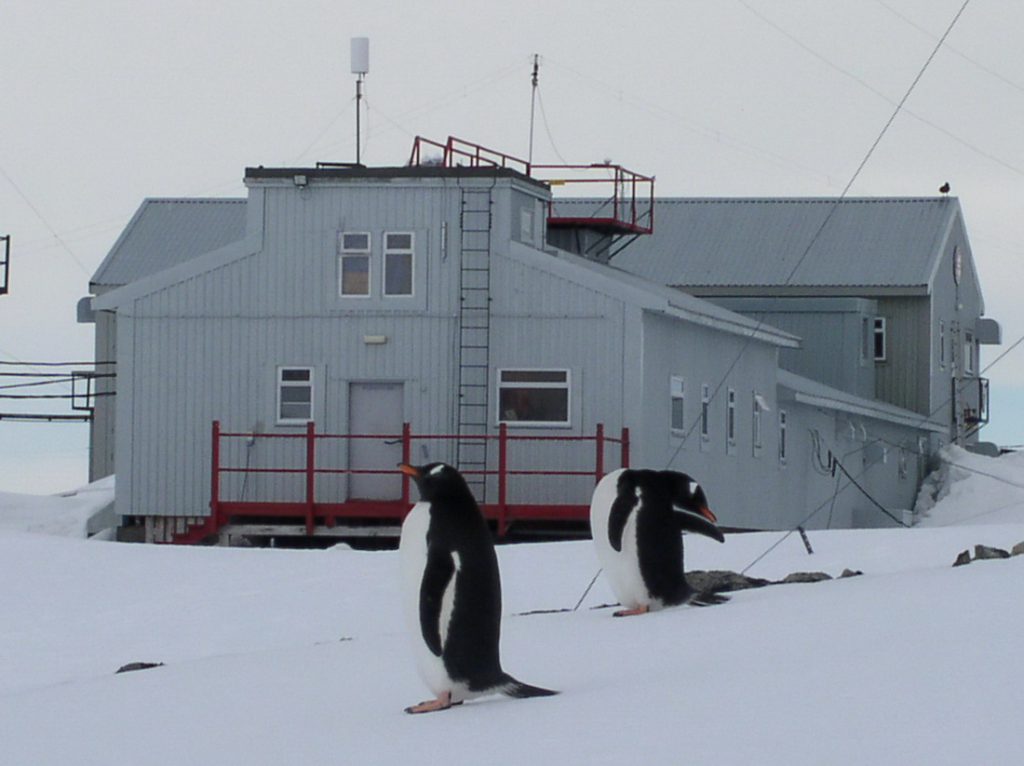
Estimating nest‐level phenology and reproductive success of colonial seabirds using time‐lapse cameras
Jefferson T. Hinke, Andres Barbosa, Louise M. Emmerson, Tom Hart, Mariana A Juáres Malgorzata, Korczak‐Abshire, Gennadi Milinevsky, Mercedes Santos Philip N. Trathan, George M. Watters, Colin Southwell. Estimating nest‐level phenology and reproductive success of colonial seabirds using time‐lapse cameras // Methods in Ecology and Evolution (Journal of the British Ecological Society)
How to respond to global warming on the planet and preserve the Antarctic environment? Data collected by Ukrainian and foreign scientists in Antarctica will help answer these questions. On May 16, 2018, their joint work was published in one of the world’s highest-rated scientific journal “Methods in Ecology and Evolution” (the British Ecological Society).
As part of an international project, scientists from 7 countries installed more than 50 cameras for continuous observation in penguin colonies on the Antarctic Peninsula. Throughout the entire time, the cameras recorded the success of penguin chicks. This made it possible to create a fundamentally new database on the nesting behavior of Gentoo and Adélie penguins (Pigoscelis papua and Pigoscelis adeliae) to determine the chronology of their reproduction and the reproductive success of the population.
The results of the study will allow to predict the reaction of these birds to changes in the Antarctic environment and the impact of the krill fishery in the coastal waters of the Antarctic Peninsula. The data obtained became the basis for a joint article by the project scientists entitled “Assessment of the phenology and reproductive success of colony-nesting seabirds using cameras with programmed recording times”.
Ukrainian polar explorers conducted the necessary research within the framework of an international project to study Antarctic ecosystems. It was launched in 2016 by researchers from the USA, Argentina, Poland, Australia and Ukraine. Later, scientists from the UK and Spain joined it. Ukraine is represented in the project by Gennady Milinevsky, head of the Space Physics Research Laboratory of the Taras Shevchenko National University of Kyiv, as well as the National Antarctic Science Center, which provides logistical support.
For reference: the journal of the British Ecological Society “Methods in Ecology and Evolution” ranked 13th out of 153 in the field of ecology in 2016.

